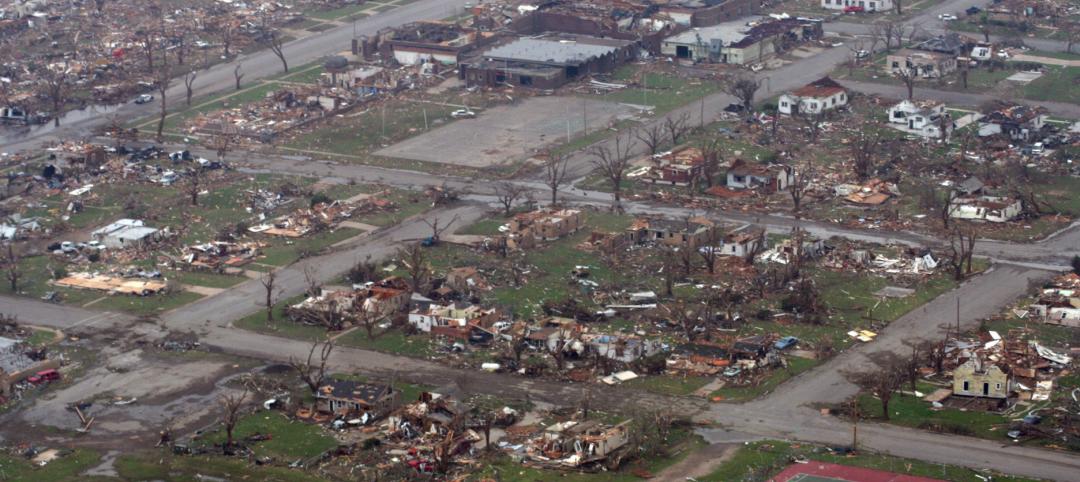Commercial property owners should commit to greenhouse gas (GHG) reduction—a strategy that reaps financial benefits and prevents buildings from becoming stranded assets, according to an energy efficiency consultant writing in GlobeSt.
A systematic drive to reduce emissions across the portfolio will garner savings on energy and water, as well as on levies for exceeding carbon emissions standards enacted by local governments. Decarbonization can avoid “stranded assets … properties that will be exposed to the risk of early economic obsolescence due to climate change because they will not meet future regulatory efficiency standards or market expectations.”
The first step is to set minimum standards for the entire portfolio and efficiency goals for individual properties. Portfolio standards could be performance based (e.g., 10% reduction of all assets by 2030), or prescriptive based (e.g., 100% LED lighting at all assets by 2025).
An energy and water audit, a comprehensive analysis of the property’s energy and water consumption using the ASHRAE Energy Audit Standards, should be conducted at each site. The audit measures energy and water usage, identifies property conditions that may cause excessive use, and provides efficiency measures to improve energy and water efficiency.
Other GHG reduction measures include building automation and controls, retro-commissioning, sourcing green energy from utilities, fully electrifying buildings, and integrating renewable energy systems into the property.
Related Stories
| Aug 16, 2012
Public sector pushes sustainable building forward
Not usually noted for its innovation, the public sector has done the most to advance sustainable building, according to a recent panel of green building professionals.
| Aug 16, 2012
Canada’s first net-positive building under construction in Milton, Ontario
The GreenLife Business Centre in Milton, Ontario near Toronto is set to become the first net-positive energy building in Canada.
| Aug 9, 2012
St. Paul cannot adopt overly restrictive egress windows policy, court rules
The Minnesota state Court of Appeals rejected St. Paul's attempt to adopt a policy on egress windows that was stricter than state law.
| Aug 9, 2012
Fire chief questions building code after St. Louis apartment building fire
A blaze that destroyed a 197-unit apartment building in St. Louis, Mo., displacing 250 residents, led the city’s fire chief to question the materials used in the construction of the four-story building.
| Aug 9, 2012
Ramps have strict criteria for ADA compliance
It is important for businesses to understand that an existing ramp at a building entrance may not mean that barrier removal obligations under the Americans with Disabilities Act have been met.
| Aug 9, 2012
ClickSafety, AGC provide online training program for construction professionals
Construction professionals will be able to take a wide range of mandatory and optional safety training programs online through a new collaboration between the Associated General Contractors of America and ClickSafety.
| Aug 9, 2012
Tornado-ravaged Greensburg, Kansas’s new green buildings save $200K a year
The town of Greensburg, Kan., virtually destroyed by a tornado in 2007, decided to rebuild 13 public buildings according to green standards.
| Aug 2, 2012
FBI investigates Turner, Tishman, Skanska, and Plaza Construction for billing practices on public projects in New York
After charges filed against Bovis Lend Lease in April led to an admission of guilt and $56 million in fines for overbilling clients, federal prosecutors are investigating the billing practices of four more New York City construction firms, according to reports.
| Aug 2, 2012
Court ruling may lead to more destructive testing on unfinished Harmon Tower in Las Vegas
A Clark County, Nevada district court judge ruled that the unfinished Harmon Hotel at CityCenter, operated and half-owned by MGM Resorts, could not use extrapolation when requesting damages at a possible trial.
| Aug 2, 2012
NIBS council recommends private and public measures to improve building sustainability
A new report by the National Institute of Building Sciences Consultative Council highlights four several areas that need focus to improve sustainability in buildings and infrastructure.















